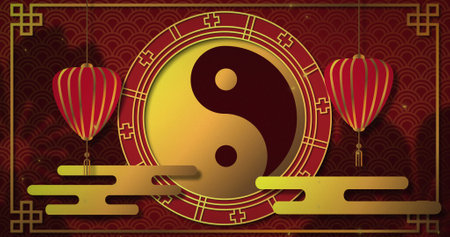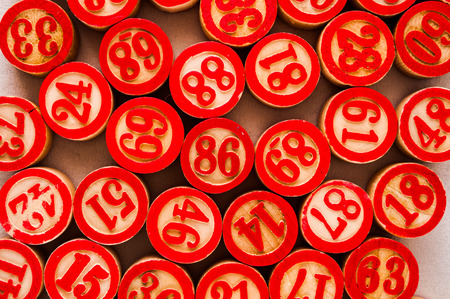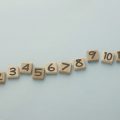Understanding Feng Shui: Ancient Wisdom Meets American Habits
Feng Shui, a cornerstone of traditional Chinese philosophy, is centered on the harmonious arrangement of space to optimize the flow of energy, or “chi.” While its roots trace back thousands of years to ancient China, its core principles—balance, flow, and intention—resonate universally. In the context of modern American life, Feng Shui offers practical strategies for creating environments that nurture well-being, productivity, and happiness. Whether you live in a suburban ranch-style home in Texas, a compact New York City apartment, or a California bungalow, the teachings of Feng Shui can be tailored to fit your lifestyle and unique architectural layout. By embracing simple adjustments—like decluttering entryways, maximizing natural light, and thoughtfully placing furniture—you invite positive energy into your daily routines. As more Americans seek holistic approaches to health and home design, Feng Shui’s wisdom provides a refreshing lens through which to view personal space. Blending ancient insights with contemporary habits enables anyone in the USA to cultivate surroundings that not only reflect their personality but also attract luck and harmony.
2. The Chinese Zodiac: What’s Your Sign and Why It Matters
The Chinese zodiac, or “Sheng Xiao,” is a centuries-old system that assigns an animal sign to each year in a twelve-year cycle. Each animal—Rat, Ox, Tiger, Rabbit, Dragon, Snake, Horse, Goat, Monkey, Rooster, Dog, and Pig—embodies unique traits and influences the personality, preferences, and luck of those born under its sign. In the American context, understanding your Chinese zodiac sign can be more than just a fun fact at Lunar New Year parties; it offers practical insights into shaping your environment and life choices for greater harmony and success.
The 12 Animal Signs and Their Characteristics
| Animal | Years (Recent) | Key Traits |
|---|---|---|
| Rat | 2008, 2020 | Clever, resourceful, adaptable |
| Ox | 2009, 2021 | Reliable, strong, determined |
| Tiger | 2010, 2022 | Brave, confident, competitive |
| Rabbit | 2011, 2023 | Gentle, elegant, alert |
| Dragon | 2012, 2024 | Energetic, charismatic, ambitious |
| Snake | 2013, 2025 | Wise, mysterious, intuitive |
| Horse | 2014, 2026 | Lively, independent, impatient |
| Goat | 2015, 2027 | Mild-mannered, sympathetic, creative |
| Monkey | 2016, 2028 | Clever, curious, mischievous |
| Rooster | 2017, 2029 | Hardworking, observant, outspoken |
| Dog | 2018, 2030 | Loyal, honest, cautious |
| Pig | 2019, 2031 | Sincere, generous, easygoing |
Navigating Life Decisions with Your Zodiac in Mind
The influence of your zodiac sign goes beyond personality—it can offer guidance on key life decisions. For example:
- Space & Feng Shui:Choosing home layouts or decor colors that align with your animal’s element (wood, fire, earth, metal or water) can enhance comfort and prosperity. For instance:
- A Dragon may benefit from bold colors and open spaces to fuel ambition.
- A Rabbit might prefer calm tones and cozy nooks for serenity.
- Career Choices:Certain careers may suit specific signs. Tigers often thrive in leadership roles while Goats excel in creative fields.
- Relationships:Compatibility between signs is a classic reference for both friendships and romantic partnerships. In multicultural American settings—where East meets West—being aware of these dynamics can add an extra layer of understanding and appreciation.
Zodiac Wisdom in the American Lifestyle
Embracing your Chinese zodiac isn’t about superstition; it’s about self-awareness. Whether you’re arranging your office desk in Silicon Valley or choosing roommates in New York City’s melting pot neighborhoods, your sign’s guidance can help you navigate challenges with confidence. By weaving ancient wisdom into modern American routines—from interior design to networking events—you create opportunities for both personal growth and cultural connection.

3. Blending Feng Shui with Modern American Interior Design
Finding Harmony in Fusion
Integrating Feng Shui principles into modern American homes isn’t about following strict rules or sacrificing your personal taste. Instead, it’s about finding a harmonious balance that brings positive energy—while still feeling like your own space. Whether you’re drawn to mid-century modern, farmhouse chic, or urban minimalism, you can infuse good fortune and well-being by thoughtfully blending Feng Shui with your favorite American design trends.
Practical Tips for Seamless Integration
1. Start with the Layout
Feng Shui emphasizes flow—of both people and energy (Qi). In open-plan spaces common in American homes, arrange furniture to promote conversation and movement without creating obstructions. Avoid placing sofas with their backs to entry doors; instead, position them to face the main entrance when possible, offering both security and welcome vibes.
2. Choose Colors Strategically
American interiors often feature neutral palettes accented with bold colors. Use Feng Shui’s elemental color theory to select accent pieces: reds for passion and recognition (great for living rooms), blues and greens for growth and health (perfect for bedrooms or home offices), and metallics for clarity and focus. This way, your favorite color trends can align with positive energy principles.
3. Embrace Natural Elements
Modern American design loves natural textures—think wood floors, stone countertops, or leafy plants. In Feng Shui, these elements represent earth and wood energy, promoting stability and growth. Add indoor plants or bamboo arrangements to corners that feel stagnant; incorporate water features like small fountains if they suit your style and space.
4. Personalize with Meaningful Decor
The Chinese Zodiac encourages displaying symbols meaningful to your birth sign—such as artwork, sculptures, or textiles. Mix these with your usual décor: a dragon figurine on a bookshelf, a rooster painting in the kitchen, or lucky coins integrated into gallery walls. These touches personalize your home while inviting luck and prosperity according to tradition.
Accessible Changes for Every Lifestyle
You don’t need a major renovation or high-end designer to benefit from Feng Shui. Small changes—like decluttering entryways, using mirrors thoughtfully to expand light, or choosing supportive headboards for beds—can have meaningful effects on mood and fortune. The goal is accessibility: simple tweaks that fit any budget or lifestyle while creating an environment where you—and your guests—feel uplifted and inspired.
4. Personalized Luck: Using Your Zodiac for Home Arrangement
Customizing your home in the United States using both Feng Shui principles and your Chinese zodiac sign is a unique way to invite luck, harmony, and personal success into your life. Here’s a step-by-step guide to ensure your living space amplifies your strengths and supports your ambitions.
Step 1: Identify Your Chinese Zodiac Sign
First, determine your Chinese zodiac sign based on your birth year. Each sign carries its own characteristics, lucky elements, and compatible directions.
| Zodiac Sign | Personality Strengths | Lucky Element | Best Home Direction |
|---|---|---|---|
| Rat | Resourceful, Quick-witted | Water | North |
| Ox | Dependable, Strong | Earth | Northeast |
| Tiger | Brave, Confident | Wood | East |
| Rabbit | Tactful, Gentle | Wood | East |
| Dragon | Energetic, Ambitious | Earth | Southeast |
| Snake | Wise, Mysterious | Fire | South |
| Horse | Lively, Independent | Fire | South |
| Goat/Sheep | Sensitive, Artistic | Earth | Southwest |
| Monkey | Clever, Versatile | Metal | West |
| Rooster | Diligent, Honest | Metal | West |
| Dog | Loyal, Responsible | Earth | Northwest |
| Pig/Boar | Compassionate, Generous | Water | Northeast or North |
Step 2: Align Your Main Living Space with Your Lucky Direction
Use a compass (your smartphone works great!) to identify your lucky direction as shown above. Try to position important furniture—like your bed or work desk—so you face this direction while sleeping or working. For example, if you’re a Tiger or Rabbit in California or Texas, aim to place your study nook or main sofa facing east.
Add American Touches While Honoring Your Roots
Blend classic U.S. décor (think cozy throws and local art) with objects representing your lucky element. If you’re a Rooster (metal), add metallic accents like brass lamps or silver frames; if you’re an Ox (earth), incorporate pottery or terracotta planters.
Step 3: Enhance with Elemental Colors and Materials
Each zodiac has an associated element that brings out its best qualities. Use these colors and materials in key areas of your home for good vibes:
| Zodiac Element | Auspicious Colors | Suits Which Rooms? | Easily Found in US Stores? |
|---|---|---|---|
| Wood | Green, Brown | Living room, Office | Yes—try eco-friendly furniture stores |
| Fire | Red, Orange | Dining area, Entryway | Yes—cushions and wall art abound |
| Earth | Yellow, Beige | Bedroom, Meditation corner | Yes—rugs and ceramics are common |
| Metal | White, Gold | Home office, Kitchen | Absolutely—look for hardware & fixtures |
| Water | Blue, Black | Bathroom, Study space | Yes—towels and accessories are easy finds |
Step 4: Adjust for Life in America
If you live in a city apartment or suburban house in the U.S., adapt these tips to fit local architecture and lifestyle. Open floor plans? Use screens or bookshelves to subtly divide areas according to Feng Shui zones without sacrificing that modern American openness.
By combining the wisdom of Chinese metaphysics with the flexibility of American design choices, you’ll create a living environment that’s not just beautiful but uniquely empowering—amplifying both tradition and personal ambition.
5. Overcoming Cultural Myths: Fact-Checking Feng Shui in America
Feng Shui and the Chinese zodiac often carry an air of mystery in the United States, sometimes leading to misconceptions and stereotypes. Its not uncommon for these traditions to be labeled as superstition or dismissed as mere “Eastern magic.” However, separating myth from fact reveals that both Feng Shui and the Chinese zodiac offer practical value—even in the fast-paced, diverse culture of America.
Debunking Common Misconceptions
One widespread myth is that Feng Shui is only about furniture placement or lucky charms. In reality, it is a holistic system rooted in environmental psychology, aiming to create harmonious living spaces that support well-being and productivity. Similarly, some assume the Chinese zodiac is just about fortune-telling. While it does reflect personality traits and cyclical influences, its deeper purpose is self-reflection and understanding life cycles—much like Western horoscopes but with unique cultural context.
Superstition Versus Practicality
It’s important to recognize that while some practices may appear superstitious—like placing a mirror to deflect bad luck or wearing specific colors on certain days—many principles of Feng Shui are grounded in common-sense design strategies. For example, maximizing natural light, reducing clutter, and arranging spaces for better flow can enhance mood and focus. These are universally beneficial practices, regardless of cultural background.
Integrating Value into American Life
Americans can benefit from these traditions without abandoning rationality or science. Using Feng Shuis emphasis on spatial awareness can boost creativity in home offices or classrooms. The Chinese zodiac can serve as a fun tool for team building or personal goal setting. By approaching these systems with an open yet critical mind, its possible to embrace their wisdom while filtering out unfounded superstition.
Ultimately, overcoming cultural myths means respecting tradition but also adapting it thoughtfully. Whether you’re organizing your workspace for success or considering your zodiac sign before a big decision, the key lies in using these ancient tools to enhance modern American life—practically, playfully, and with purpose.
6. Everyday Luck: Feng Shui and Zodiac Practices for Work, Wellness, and Family
Bringing Ancient Wisdom Into Daily American Life
Integrating Feng Shui and Chinese Zodiac principles into your daily routines doesn’t require a total lifestyle overhaul. By adopting simple, practical habits inspired by these time-tested systems, Americans can create spaces and rituals that foster luck, wellness, and connection—whether at home, in the workplace, or within the broader community.
At Home: Create Spaces That Nurture Harmony
Start with mindful decluttering—an essential Feng Shui step that makes room for positive energy (chi) to circulate freely. Position your bed so you have a clear view of the door, symbolizing safety and opportunity. Incorporate your Zodiac animal’s lucky colors and elements in décor accents: for example, those born in the Year of the Rabbit might use more wood tones and green hues. Add a bowl of fresh oranges at the entrance for prosperity—a tradition embraced across generations.
At Work: Boost Productivity and Positive Vibes
Arrange your workspace so you face the entrance; this “command position” is believed to attract helpful opportunities and guard against negative surprises. Bring in small plants or crystal paperweights to activate wealth corners according to Feng Shui Bagua maps. Use your Zodiac sign as inspiration for desk accessories—like a figurine or calendar featuring your animal—to remind you of your strengths and encourage self-confidence in meetings or negotiations.
Wellness Rituals: Align With Auspicious Timing
Many Americans already track horoscopes; try checking your Chinese Zodiac daily luck forecast before important decisions. Schedule major moves or launches on days when both Western astrology and your Zodiac align favorably. Practice mindful breathing or tai chi during your Zodiac’s lucky hours for an energy boost. These habits help synchronize personal rhythms with supportive cosmic cycles.
Family & Community: Celebrate Shared Fortune
Host potlucks where guests bring dishes featuring ingredients linked to good fortune—like noodles for longevity or dumplings for wealth. Encourage children to learn about their Zodiac animals, fostering cross-cultural appreciation and identity pride. Volunteer together on auspicious dates, channeling collective intention toward community well-being—a practice that blends American civic spirit with the Chinese concept of shared destiny.
Small Steps, Lasting Benefits
You don’t need deep expertise in Feng Shui or astrology to benefit from their wisdom. By adopting these approachable habits—clearing space, honoring lucky symbols, timing actions thoughtfully—you invite greater luck and harmony into everyday life. Over time, these routines not only enrich personal experience but also weave new threads of connection within America’s multicultural fabric.


